Give it a go: Healthy Eating Week 2024
This week is The British Nutrition Foundation’s Health Eating Week.
We encourage everyone to try it and take small steps toward living a healthy and sustainable life.
Here are some small, positive changes you can make this week. Click or tap an image below to jump to that section.
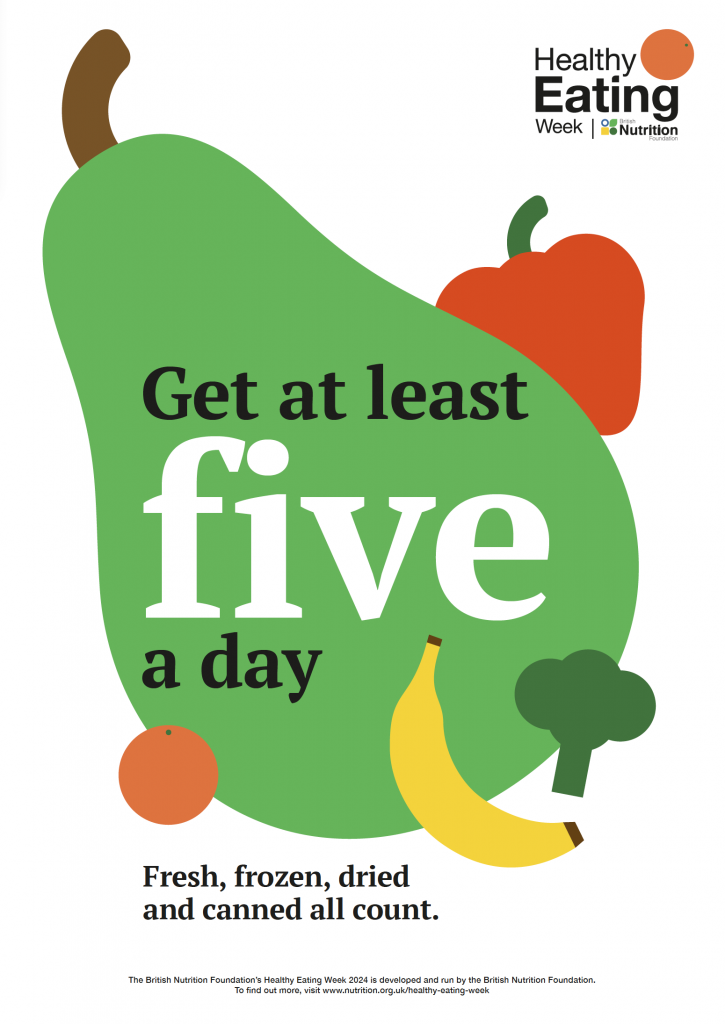
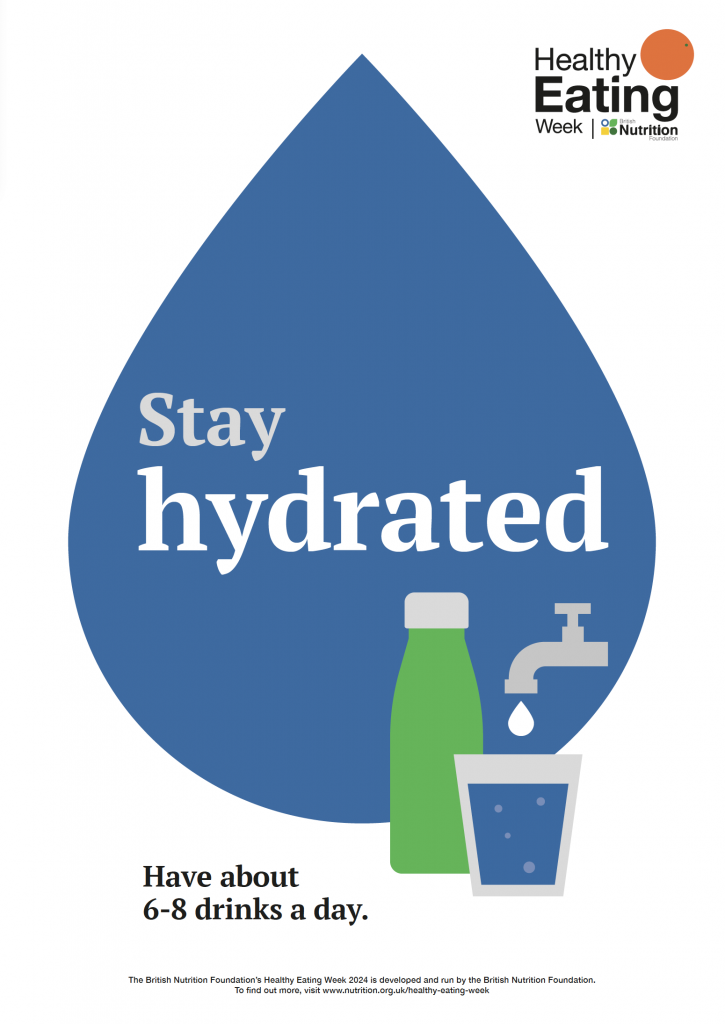
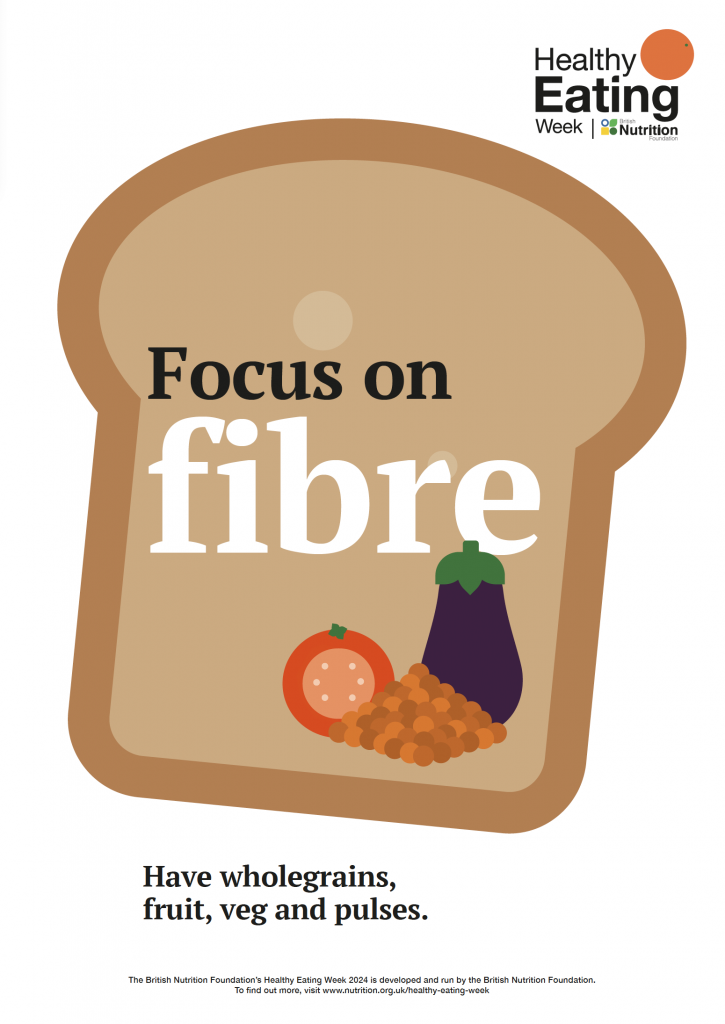
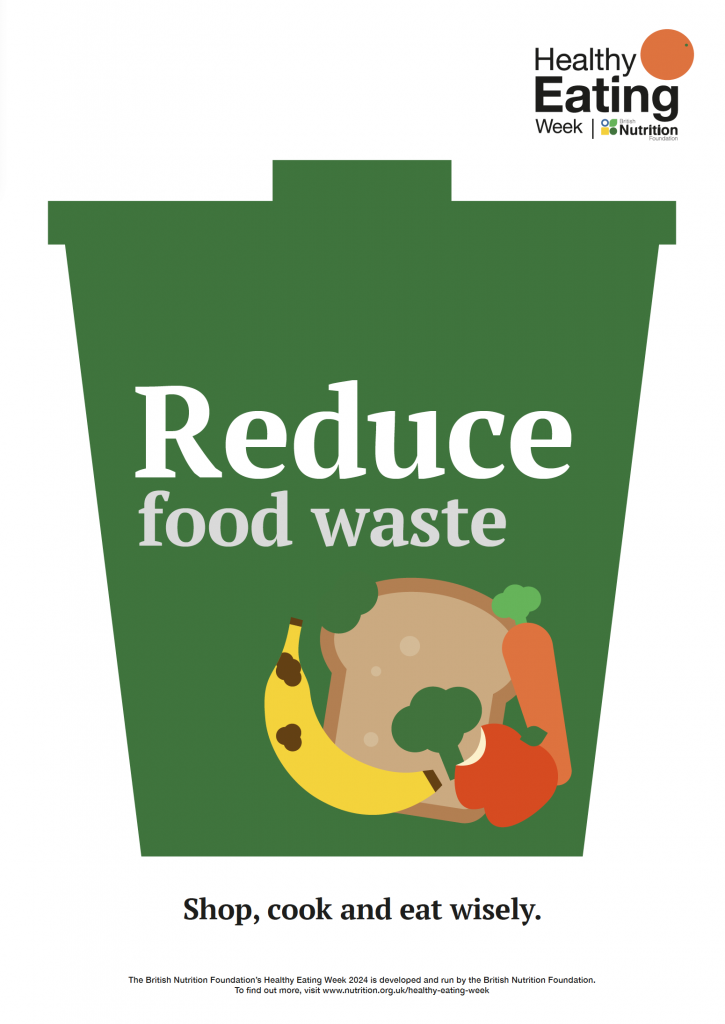
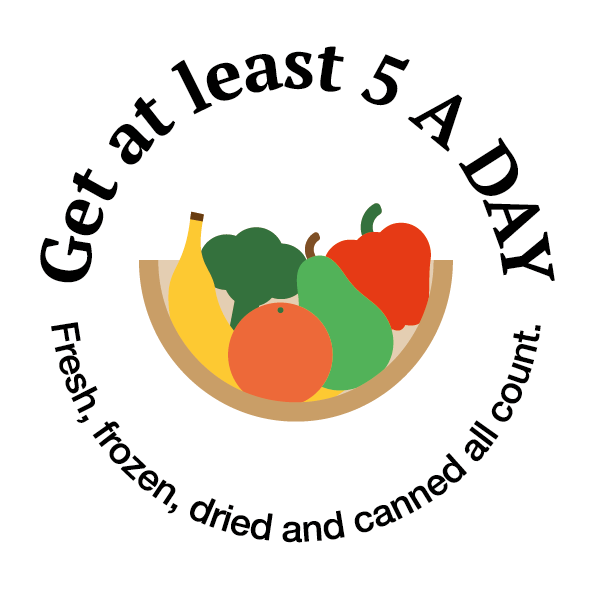
Five a day
Most people know how important it is to eat at least five portions of fruit or vegetables daily, but some ways to do it might surprise you.
Remember that fresh, frozen, dried, canned fruit and veg count.
Mixing what you eat helps you get a healthy range of vitamins, minerals and fibre.
Why not try The British Nutrition Foundation’s five-a-day bingo and see how many you can tick off?
| Seasonal fruit Blackcurrants and cherries are in season in June | Frozen Vegetables Steam or microwave some peas or sweetcorn from the back of the freezer | Dried Fruit Raisins, apricots, prunes or dates (without too much added sugar) |
| Red fruit or veg Tomatoes, peppers, raspberries, strawberries, red apples – plenty to choose from | Canned fruit or veg Fruit in juice or veg in water are just as healthy as fresh options | Green leafy vegetables Kale, spinach or Romain lettuce are low in calories and high in vitamins |
| A fruit or veg you’ve never tried before Give gooseberries or Swiss chard a try | Fruit or vegetable juice 150g of juice or a smoothie count as 1 of your five-a-day | Seasonal vegetables Add some asparagus or carrots, both in season now. |
An adult portion of fruit or veg is about 80 grams. Take a look at The British Nutrition Foundation’s guide to portion sizes.
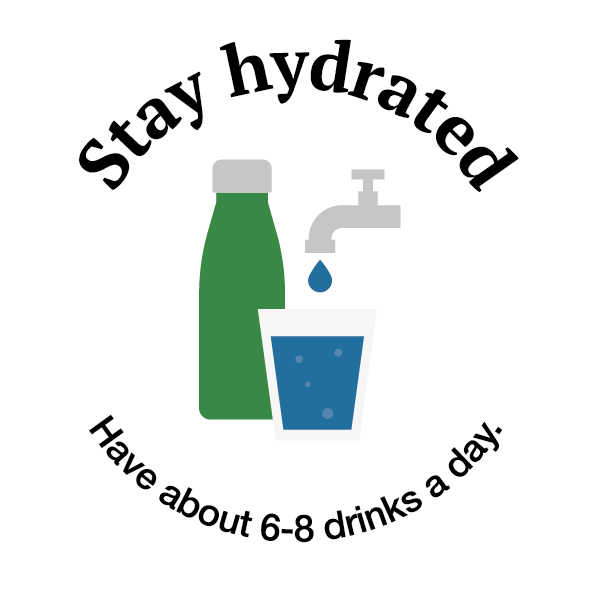
Stay hydrated
Tap water is a cheap and healthy choice, but low-fat milk and sugar-free drinks, including tea and coffee, count, too.
Aim for 6-8 drinks a day – or more if you’re pregnant or breastfeeding, very active, or in a hot environment.
Keep a reusable water bottle with you and aim to refill it several times throughout the day.2
The easiest way to tell if you’re drinking enough is to check your wee.
Frequent and pale yellow means you’re properly hydrated. Dark yellow, strong-smelling and not very often says you’re probably dehydrated.
Staying hydrated keeps our kidneys working, helps digestion, and boosts energy and concentration. It also helps us feel full, so it can help with weight loss.
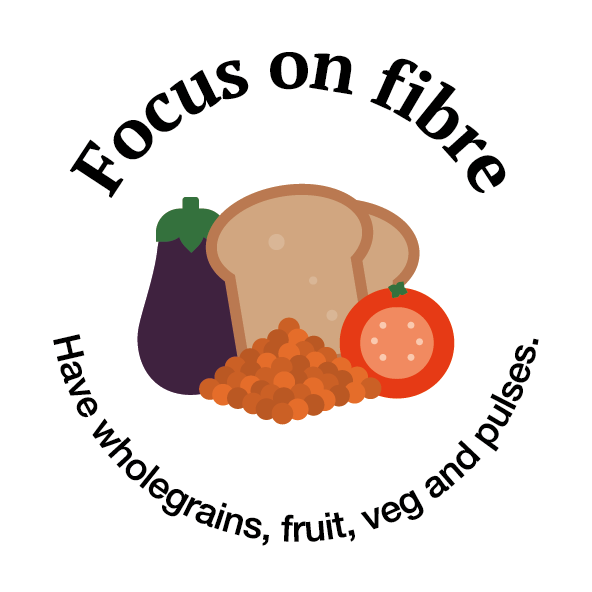
Focus on Fibre
Eating plenty of fibre keeps our gut healthy and can reduce the risk of heart disease, stroke, type 2 diabetes and bowel cancer.
Good sources of fibre include:
- Wholegrains (seeds like wheat, barley or rye with very little removed)
- Wholemeal breads, wraps and pittas
- Wholemeal pasta
- Brown or wild rice
- Muesli or porridge
- Fruit like pears, bananas or apples
- Vegetables like carrots or broccoli
The NHS says that for a balanced diet, most people need an extra 30g of fibre every day.
Getting more fibre into your diet can be as simple as swapping or adding something to your meal.
Here are three easy suggestions from The British Nutrition Foundation:
- Add a banana and unsalted nuts to your breakfast bran flakes for an extra 10g of fibre
- Get another 14g of fibre with beans on wholemeal toast for lunch, followed by a banana
- Try a chickpea curry with brown rice, sweet potato and spinach for another 12g.
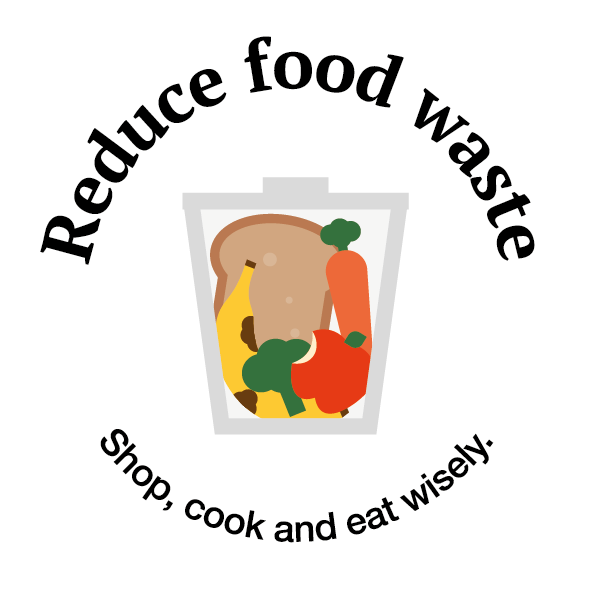
Reduce Food Waste
Lastly, reducing food waste is good for your health, wallet, and the environment.
A third of food produced worldwide gets wasted – either in the supply chain or by us as consumers. It’s not just wasteful but also contributes about 10% of greenhouse gases.
So, what can we do to reduce waste?
- Plan our meals and write shopping lists of ingredients. Avoid shopping when hungry, which makes it easy to make good food choices.
- Think about portions. Knowing how much we should eat helps us prepare the right amounts, resulting in less waste or risk of overeating.
- Use leftovers – either freeze for another time or use extra veggies for soups or sauces.
- Use your freezer. Food you’re not going to use can be kept for another time. Frozen fruit and veg are just as healthy as fresh ones and last much longer.
Long-lasting food like tinned fruit and vegetables, pasta, nuts, or canned fish can be cheap and easy to prepare. Look for special offers or buy in bulk so you always have them in reserve. Meals can be healthy without being fresh.
